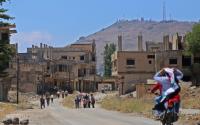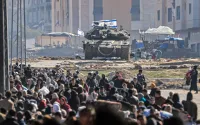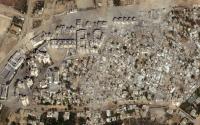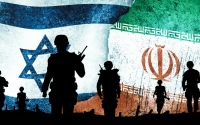Jonny Dymond, Istanbul4 August, 2002Pro-European politicians have won a landmark victory in Turkey with the passage of legislative reforms that delighted human rights activists. After a 22-hour debate the Turkish parliament abolished capital punishment, lifted restrictions on the use of the Kurdish language and swept away constraints on free speech.
One human rights activist described the reforms as 'the most positive changes made during the whole history of the Turkish republic'.
The vote came three days after parliament voted to curtail the life of the government of the ailing Prime Minister, Bulent Ecevit, and called for elections in November.
Many of Turkey's pro-European politicians had feared that the elections would deal a death blow to the country's hopes of joining the European Union; the reforms to the penal code were necessary if Turkey was to be considered for membership at the Copenhagen summit at the end of the year.
The largest bloc in parliament, the right-wing Nationalist Action Party (MHP), campaigned against the reforms, arguing that abolition of the death penalty was in effect an amnesty for captured Kurdish paramilitary Abdullah Ocalan and that the use of Kurdish could endanger the country's unity.
Turkey's estimated 12 million-strong Kurdish minority have long said that they are discriminated against by the central government. The paramilitary group PKK fought a 15-year war against Turkish security forces during the 1980s and 1990s. More than 35,000 people were killed and more than a million uprooted from their homes.
The MHP stormed into power at the election in 1999 after having campaigned for the execution of Ocalan. He was sentenced to death by the Turkish courts, but the execution has been stayed pending an appeal.
Since 1999 the MHP has looked for new nationalist causes to fight; its leader, Devlet Bahceli, has railed against what he has described as the EU intrusions into Turkey's domestic affairs. Members of the party were delighted when a series of emails from Karen Fogg, then the EU representative, to the Commission in Brussels were leaked to the Turkish media earlier this year.
The emails themselves were relatively inoffensive commentaries on Turkey and the EU. But the MHP and far-left politicians delighted in seeing conspiracies within them.
In the debate on Friday over the first article of the reforms, the abolition of the death penalty for all but crimes in time of war, MHP deputies warned that the polls would punish those who voted for abolition.
Referring to the relatives of soldiers killed in the battle with the PKK, one legislator said: 'The families of the martyrs await the decision you will take here with tears in their eyes.' He accused MPs of treating Turks as if they were 'fools and stupid'.
But Mesut Yilmaz, the leader of the centre-right party Motherland, rejected the criticism, declaring that 'Turkey is definitely in the West'. The stage is set for a bitter election battle in the winter over the reforms.
Turkey has been repeatedly condemned for human rights abuses. Amnesty International says that security forces continue to practise 'systematic and widespread' torture and ill-treatment of prisoners.
But things are changing in the country. A state of emergency now remains in only two provinces, after having been lifted in a third last week. The government has pledged to crack down on security personnel who carry out torture. And the passage of the reforms yesterday represents a watershed.
As well as abolishing capital punishment and lifting many of the curbs on the use of Kurdish, the ban on criticism of the armed forces and other organs of the state has been swept away.
Osman Baydemir, who leads the Diyarbakir branch of Turkey's Human Rights Association, based in the mainly Kurdish south-east of the country, said activists had sat up through Friday night watching the vote.
'For the first time the differences were accepted,' he said, referring to the Kurdish role in Turkey, 'a denial has stopped - they actually acknowledged that the cultural differences exist.'
Western diplomats remain cautious about EU membership for Turkey; in the past it has been called 'too big, too Muslim and too poor'.
http://www.observer.co.uk/europe/story/0,11363,769041,00.html






